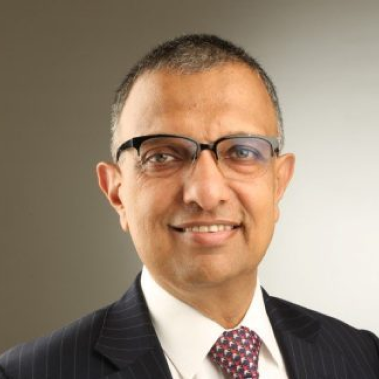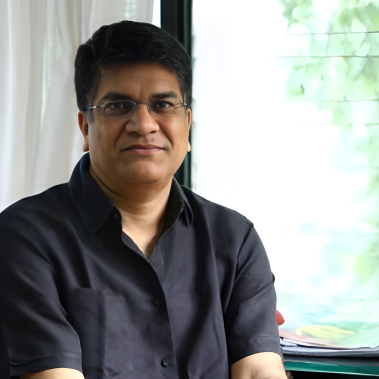Healthcare Finance in India
Indian Health System is underperforming relative to most global benchmarks and even compared to local neighbours. This underperformance is both on intermediate indicators such as the efficiency of resource use, quality of services, and access to them as well as outcome indicators such as health outcomes, responsiveness, financial protection, and equity. For improving the Indian health System multilevel actions are needed, which includes health financing.
Dvara Research through this new workstream tries to layout pathways to enhance health financing in India to achieve universal healthcare. The below infographic illustrates the journey envisioned by us towards universal healthcare.

Writings
Working Paper
Managed Competition in Colombia
by Aarushi Gupta & Anjali Nambiar
Colombia’s healthcare domain, like many other sectors in the country, was completely overhauled as part of the country’s sweeping reforms that followed the adoption of a new Constitution in 1991. The reforms introduced a mandatory social health insurance system, with many of its features designed in line with the theoretical principles of managed competition.
Managed Competition in the National Health Insurance System of Israel
by Anjali Nambiar
In structuring their health systems, many countries have borrowed from the principles of managed competition, a theory developed in the 1980s. In this paper, we delve into the case of the national health insurance system in Israel and analyse how managed competition has been implemented to regulate the system. We trace the evolution of the health system, provide an outline of its current design, and describe the emerging challenges that the system faces.
Incremental Adoption of Managed Competition in Germany
by Anjali Nambiar
In this paper, we document the experience of Germany’s SHI system with managed competition and the challenges faced by this sub-system in faithfully implementing the principles of managed competition as originally envisioned by Enthoven.
Care through competition: The case of the Netherlands
by Hasna Ashraf
In this paper, we look at what made a transition to managed competition possible in the Netherlands, how managed competition has played out, and the challenges that the system currently faces.
Designing Health System
by Hasna Ashraf & Anjali Nambiar
In this paper, we propose an analytical framework that provides an overview of the various actors and processes involved in financing, purchasing, provision and provider payments.
Designing Health System
by Hasna Ashraf & Anjali Nambiar
In this piece, we revisit Enthoven’s principles and propose a broader definition of the concept of managed competition in order that it may encompass other countries’ experiences that do not conform to a strict application of Enthoven’s concept.
Managed Competition: Revisiting Enthoven’s Principles
by Anjali Nambiar
In this paper, based on a study of the theoretical and empirical literature, we conclude with a set of hypotheses that looks at how demand for health insurance can be fostered by targeting both the components of demand (intention and action), through well-designed awareness measures and nudges to overcome the various behavioural biases involved.
Managed Competition: Revisiting Enthoven’s Principles
by Anjali Nambiar
In this paper, we analyse the political determinants of improved health outcomes, making a case for political attention to healthcare, through increased investments, healthcare reforms and improved capacity to deliver curative and public health.
Read More
Pathways to Reimagining Commercial Health Insurance
by Hasna Ashraf, Indradeep Ghosh, Nishanth Kumar, Anjali Nambiar and Sowmini Prasad
In this paper, we explore how India’s growing commercial health insurance (CHI) segment can be used to deliver adequate financial protection and good health outcome.
Pathways to Reimagining Commercial Health Insurance
by Anjali Nambiar
In this paper, we analyse the role of the political economy of health in driving health outcomes and the financial burden of health, and make the case for political attention to healthcare, through increased investments, healthcare reforms and improved capacity to deliver health, both public health and curative.
Read More
Improving the value of out-of-pocket expenditures Summary of problems & preliminary theory of change
by Bindu Ananth, Sakshi Hallan, Tejasvi Ravi & Neela Saldanha
In this paper, we provide a starting point to understand this problem and its first principles. We outline the problem and point to specific areas of high OOP spending that need further investigation. We explain how the current market structure and credit constraints, combined with the psychology of healthcare decision making leads to sub-optimal investments in health care and poor outcomes. Given this, we outline some areas of improvement and potential hypotheses to examine further through deeper literature review, expert interviews and primary research.
Opinion Editorial
Health Savings Accounts for India - Another string in the bow?
by Aarushi Gupta, Bindu Ananth, Bindu Ananth& Hasna Ashraf
Out-of-pocket-expenditure (OOPE) in India continues to account for more than half of its current health expenditure with significant state-level variations. OOPEs attain catastrophic levels when they exceed a certain percentage of a household’s monthly income or capacity to pay, typically due to unexpected and high-cost expenses.
Do our current health system challenges give us an opportunity to leapfrog?
by Nachiket Mor & Raghu Dharmaraju
The challenges faced in the past by the Indian healthcare system pale in comparison with those brought on by the pandemic. That India consistently delivers solutions during crises, has long been well-proven.
Do our current health system challenges give us an opportunity to leapfrog?
by Nachiket Mor & Raghu Dharmaraju
India does poorly on all the three dimensions along which health systems’ performance is measured – health outcomes, financial protection, and responsiveness – both for the population as a whole and for the bottom quintile.
Does India need an entirely new development model?
by Nachiket Mor & Sandhya Venkateswaran
While the effects of the recent pandemic have indeed set India’s economy back several years, it is not clear if, prior to it, the development model that we were pursuing (and seem to be returning to, now that the worst of the pandemic is seemingly behind us) was the one best suited to ensuring that we realise our full potential as a country and as a people.
Should financial protection be separated from universal health care?
by Nachiket Mor & Hasna Ashraf
The choice of financing method that countries make exerts a powerful influence on how their health systems evolve. In this context, the question which receives most attention relates to the extent to which countries choose to direct tax resources towards healthcare instead of other welfare tools.
‘More health for the money’: Obtaining more value from financing
by Nachiket Mor
Currently, we in India spend a total of about 4% of our Gross Domestic Product (GDP) on health care, with almost 2.5% being directly paid for by us at the time that we use any health care services, and only 1.25% being spent by the government.
‘More Money for Health’: Financing Universal Health Coverage in India
by Nachiket Mor
Any discussion of the pathways that India needs to take towards Universal Healthcare (UHC) would be incomplete without a clear understanding of how it is to be financed. While this proportion varies considerably across states, currently, we in India spend a total of about 4% of our Gross Domestic Product (GDP) on healthcare with almost 2.5% (or 62.5% of the 4%) of this being directly paid for by us at the time we use any healthcare services.
Amped in Ankara: Drug trade and drug policy in Turkey from the 1950s through today
We motivate this short piece by first reminding readers of India’s poor health outcomes and related vulnerability of her people to financial distress. The end-goal of universal health care is a multi-year journey, which will require more resources dedicated towards health. But there are intermediate destinations along possible transition paths that increase the efficiency of the limited existing health care resources and could result in more equitable outcomes. Capitalizing on these relatively lower-hanging fruit can build support for much needed and otherwise seemingly intractable reform.
Women leaders, and women voters, matter
By Sandhya Venkateswaran
India’s status on women’s political participation has been underwhelming, highlighted by the World Economic Forum’s Global Gender Gap Index 2021, where India ranked 140 among 156 participating countries, faring the worst in terms of political empowerment
A democratic health check: why India shows the need for democracies to prioritise healthcare
by Dr Louise Tillin &
Sandhya
Venkateswaran
The second wave of COVID-19 has hit India hard and laid bare the parlous consequences of decades of under-investment in its health system. India’s public health expenditure is stubbornly low in comparative terms – just 1 per cent of GDP per annum compared to 3 per cent in China, 4 per cent in Brazil or 4.5 per cent in South Africa. Private out-of-pocket expenditure at 64 per cent of total health expenditure, including by low income households, far exceeds the public financial commitment to health expenditure. Yet it is not just in financial terms that India under-invests. India’s voters and its politicians also politically under-invest in health.
From vaccines to oxygen, Centre-state volleyball needs to end
by Sandhya Venkateswaran
There can be inter-state inequity in accessing the vaccine; if some don’t have resources to buy, or if competition results in some buying more than they need.
Covid-19: Battling the second wave
by Amrita Agarwal & Sandhya Venkateswaran
In the immediate context, focus on surveillance and research, infrastructure, behaviour, vaccines. In the medium term, set up a dedicated institution
Why don’t voters value health care?
by Sandhya Venkateswaran
One illness can wreck a family’s income status. Yet, the issue does not rank as a salient factor in voting behaviour for a range of reasons
How Covid-19 can transform health care
by Sandhya Venkateswaran
The pandemic disrupted life, livelihoods, education and health like little else in recent history
Indian Private Healthcare’s Flawed ‘Real Estate Model’
by Nachiket Mor
The kinds of advanced care that the largest Indian hospitals are best placed to offer, are needed by <0.25% of people at any point
Can private healthcare provide more value to consumers?
by Nachiket Mor
Given the inadequate government allocations to healthcare, we need to nudge the private sector to provide affordable primary care to consumers.
Making health allocations work
by Sandhya Venkateswaran & Nachiket Mor
Budgets are less than adequate. Greater efficiencies in spending will help in delivering more
Information Technology In Healthcare – Promise And Mirage
by Nachiket Mor
In Indian healthcare, technology has made inroads in areas like diagnostics & computer-aided surgeries, but has lagged elsewhere.
Unleashing The Full Power Of PMJAY For Post COVID-19 India
by Nachiket Mor
The PMJAY is a powerful scheme with the potential for significant direct and indirect impact, writes Nachiket Mor.
Public funds have been poorly allocated
by Nachiket Mor
Ahead of Budget 2021, India needs to rethink its overall strategy for the investment of public funds.
The Role Of Government In India’s Healthcare After Covid-19
by Nachiket Mor
Government has multiple core roles in healthcare, including financing and stewardship. In India, large gaps remain on both fronts.
What Does Customer Choice And Centricity Mean In Healthcare?
by Nachiket Mor
In this post, we lay out some of the consumer-centric mechanisms to resolve demand-side (delayed care-seeking) & supply-side (improper response) issues within the health system.
Employee State Insurance Scheme is missing in action
Covid-19 has exposed how ESIS and the ESIC system have failed beneficiaries; there is a need for reform involving outcome-measuring, better governance, and competition
Blog Post
Universal Health Coverage Through Statutory Health Insurance In Germany
by Anjali Nambiar
Germany was the first country to introduce social health insurance at the national level. Its statutory health insurance system has developed and evolved significantly since its inception as a Bismarckian model , through the course of time to its adoption of principles of competition.
Thailand: A Case Study In Strategic Purchasing
by Hasna Ashraf
Thailand is seen widely as a key example of a successful transition to Universal Healthcare (UHC). Since the shift towards UHC in 2002, Thailand has experienced an impressive decline in out-of-pocket (OOP) expenditure from 27% in 2002 to 11% of the Total Health Expenditure in 2019.In this blog post, we analyse Thailand’s strategic purchasing and it’s health system financing.
Universal Health Coverage: Case Study Of Israel’s Managed Care Model
by Anjali Nambiar & Hasna Ashraf
At a total health spending of $2903 (PPP) per capita, Israel spends only a fraction of what most OECD countries do. Even with its relatively low spending, Israel’s health outcomes have been impressive in terms of preventing deaths, reducing loss of functioning and extending life, as evidenced by the low under 5 mortality rate, low DALY rate as well as high life expectancy, respectively. What underlies these rather remarkable outcomes is a well-designed health system. In this post, we closely examine how the Israeli health system is financed.
National Health Mission: Rigid And Complicated Fund Devolution Leading To Underutilisation
by Anjali Nambiar
Our previous work has evaluated centrally sponsored schemes (CSS) and their effect on centre-state financial relations. In this post, we look at one such CSS scheme and its rigid fund devolution architecture that has reduced states’ autonomy in implementing the scheme.
Leveraging Communities For Health Insurance
by Anjali Nambiar & Hasna Ashraf
In this blog post, we analyse the community-based health insurance model and suggest pathways for reform
Community-Based Health Insurance: The VimoSEWA Case
by Anjali Nambiar
In this blog post, we analyse the VimoSEWA model in India, which shows the strength of community-level intervention and support
Managed Care: Linking Health Care With Health Insurance
by Hasna Ashraf
In this post, we examine the concept of managed care and attempt to understand its relevance in the Indian context.
Brief
Making Healthcare Budgets Count: A Study of State Expenditure on Healthcare
by Hasna Ashraf & Anupama Kumar
In this research brief, we explore the differences in healthcare expenditure between the high-performing and lower-performing States, as defined by Disability Adjusted Life Years
Webinars
Meeting people where they are: How pharmacies, schools and families can change healthcare
Wednesday, August 25
In India and South Asia, there are many challenges inherent to the delivery of equitable and accessible healthcare. In order to bridge these gaps, patients and caregivers need to be met where they are, and for preventive care delivery to be innovative, engaging, and customisable. This webinar will showcase creative examples that reimagine how patients and caregivers can be empowered at various points in their healthcare journey, discussing learnings from Noora Health, Jeeon, and Health Basix on how to ‘close the gap’ between care delivered in hospitals and homes, and how family caregivers, pharmacies, and schools can be a key link to ensure patients receive the best possible care.
The Role of Commercial Health Insurance
Tuesday, August 3
The webinar is a joint Lancet Citizens’ Commission on Reimagining India’s Health System event with Dvara Research and HBS Health Care Initiative on the role of commercial health insurance in providing better health outcomes and improved financial protection in India. Comparing the experiences in different countries, the panel will discuss whether the integration of insurance and healthcare can solve the issues of information asymmetries in the market, what form would such an integration take, and what should be the regulator’s role. Further, it will explore the question of demand for insurance, what are the lessons for countries such as India from global experiences on commercial insurance, and how can the models be adapted to suit low-income consumers. As a Citizens’ Commission, we invite the public to participate in the discussion, provide input and engage with the panelists.
Panellist

Dr Cristian C. Baeza
Executive Director, International Center for Health System Strengthening

Dr Nachiket Mor
Visiting Scientist, The Banyan Academy of Leadership and Mental Health

Dr Niranjan Rajadhyaksha
Research Director and Senior Fellow, IDFC Institute
Moderator

Dr Cristian C. Baeza
Executive Director, International Center for Health System Strengthening

Dr Nachiket Mor
Visiting Scientist, The Banyan Academy of Leadership and Mental Health

Dr Niranjan Rajadhyaksha
Research Director and Senior Fellow, IDFC Institute
Closing remark

Dr Cristian C. Baeza
Executive Director, International Center for Health System Strengthening
Community Based Health Insurance
Tuesday, August 3
The webinar is a joint Lancet Citizens’ Commission on Reimagining India’s Health System event with Dvara Research and HBS Health Care Initiative on the role of commercial health insurance in providing better health outcomes and improved financial protection in India. Comparing the experiences in different countries, the panel will discuss whether the integration of insurance and healthcare can solve the issues of information asymmetries in the market, what form would such an integration take, and what should be the regulator’s role. Further, it will explore the question of demand for insurance, what are the lessons for countries such as India from global experiences on commercial insurance, and how can the models be adapted to suit low-income consumers. As a Citizens’ Commission, we invite the public to participate in the discussion, provide input and engage with the panelists.
Panellist

Dr Cristian C. Baeza
Executive Director, International Center for Health System Strengthening

Dr Nachiket Mor
Visiting Scientist, The Banyan Academy of Leadership and Mental Health

Dr Niranjan Rajadhyaksha
Research Director and Senior Fellow, IDFC Institute
Moderator

Dr Cristian C. Baeza
Executive Director, International Center for Health System Strengthening

Dr Nachiket Mor
Visiting Scientist, The Banyan Academy of Leadership and Mental Health

Dr Niranjan Rajadhyaksha
Research Director and Senior Fellow, IDFC Institute
Closing remark

Dr Cristian C. Baeza
Executive Director, International Center for Health System Strengthening
Political Determinants of Health System Improvements: Comparative Perspectives
Monday, July 19
This webinar is a joint event with King’s India Institute, King’s College London and Centre for Social and Economic Progress in the form of a panel discussion on the political determinants of health prioritisation. The panel explored cross national variations in levels of public health investment and political prioritisation of health system improvements. It also explored how and when cross-class coalitions have developed to push for stronger public health infrastructure, including in countries with large middle class reliance on private health. With insights from those who have been involved in the reforms or have studied the motivations for reforms, this panel discussion brought together global comparative insights into when, why and with what consequences political leaders have invested more in health. It concluded by reflecting on possible lessons for India.
Reform Pathways for Healthcare Financing in India
A Dvara Research & IndiaSpend Webinar Series
Over the course of four sessions, distinguished panellists will take up some of the most pressing questions about the financing of healthcare, and suggest pathways and proposals for reforming healthcare in India that are rooted in our context and institutional abilities.

